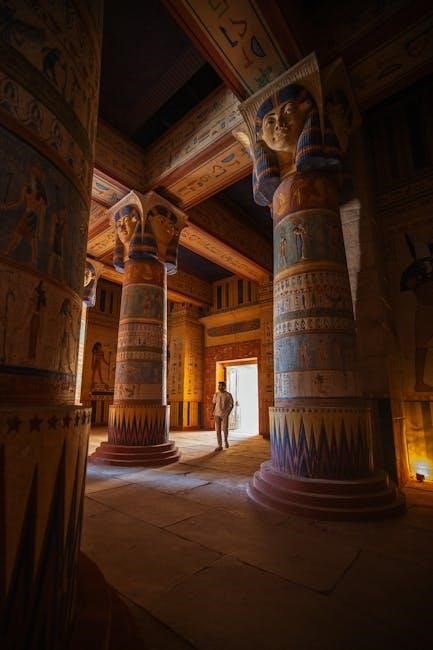
Yasmina Reza’s God of Carnage, debuting in 2006, is a dark comedy exploring civility’s facade. Two parents’ meeting reveals societal tensions and human nature’s duality through humor and conflict.
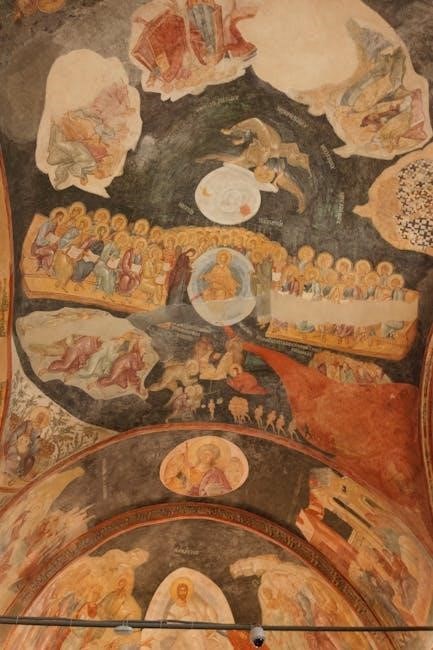
Themes
God of Carnage explores civility’s facade, societal norms, and human behavior through dark comedy, revealing how conflict exposes primal instincts beneath polite interactions and civilized pretenses.
2.1 Civility vs. Savagery
Yasmina Reza’s God of Carnage masterfully examines the tension between civility and savagery, as a seemingly polite meeting between parents descends into chaos. The play exposes how societal norms and polite facades crumble under conflict, revealing primal instincts. Initially, the characters maintain a veneer of civility, but as tensions rise, their true selves emerge, showcasing the thin line between decorum and savagery. This theme is central to the play, highlighting how easily human behavior regresses when faced with confrontation, ultimately questioning the authenticity of civilized behavior in modern society. Through dark humor, the play critiques the hypocrisy embedded in societal expectations, offering a searing commentary on human nature.

2.2 Parenting Styles
In God of Carnage, parenting styles are a central theme, reflecting the characters’ differing beliefs and values. The play portrays two contrasting approaches: one couple embodies a more permissive style, allowing their child to learn from mistakes, while the other adheres to stricter rules, emphasizing control and discipline. These styles clash during the meeting, as each couple tries to defend their child’s actions and assign blame. The tension between their approaches highlights the challenges of modern parenting, where balancing authority and empathy is difficult. The play critiques both extremes, suggesting that neither style is entirely effective. Through this lens, Reza explores how parenting reflects broader societal issues, such as responsibility and accountability, ultimately inviting the audience to reflect on their own parenting methods and the impact on their children’s behavior.
2.3 Social Class
Social class is a significant theme in God of Carnage, as it influences the characters’ behaviors, attitudes, and interactions. The play portrays two couples from different social backgrounds, highlighting the tension between their lifestyles and values. One couple represents a more affluent, polished upbringing, while the other embodies a middle-class pragmatism. These differences are evident in their language, mannerisms, and expectations. The clash of social classes underscores the characters’ insecurities and competitiveness, revealing how societal status shapes their perceptions of themselves and others. Reza uses these contrasts to critique the pretenses of the upper class and the insecurities of the middle class, ultimately exposing the superficiality of social hierarchies. The exploration of social class adds depth to the play’s examination of human nature and societal norms.
2.4 Gender Dynamics
The play God of Carnage explores the intricate dynamics between genders, revealing how societal expectations and roles influence behavior. The male characters often struggle with expressions of vulnerability, while the women navigate the tension between nurturing and assertiveness. The interactions between the couples highlight the power struggles within relationships, as well as the unspoken rules of masculinity and femininity. Reza’s dialogue exposes how gender norms shape communication, with men often resorting to aggression or passive aggression, while women use emotional manipulation. These dynamics create a layered tension, showcasing how gender roles complicate interpersonal conflicts. The play critiques the limitations imposed by traditional gender expectations, offering a nuanced commentary on how these norms affect human relationships and societal interactions. The exploration of gender dynamics adds another dimension to the play’s examination of human behavior and societal constraints.
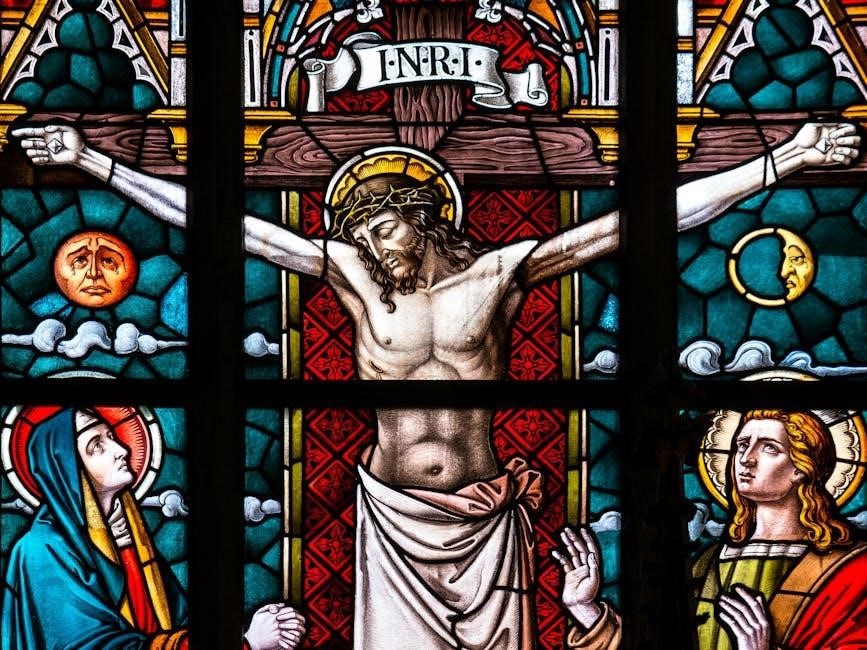
Characters and Relationships
The play revolves around two couples navigating a tense meeting about their children’s conflict. The characters are complex, with relationships marked by underlying hostility and unspoken tensions, revealing raw emotions and societal pressures.
3.1 The Couples
The two couples in God of Carnage are portrayed as initially civilized but increasingly volatile. The Novaks and the Reilles meet to discuss a conflict between their children, but their interaction quickly escalates into a clash of egos, revealing deep-seated tensions. The couples’ dynamics are marked by passive-aggressive remarks, underlying hostility, and a gradual breakdown of their polished facades. Their relationships are complex, with each partner exhibiting contrasting traits—rationality versus emotional instability, or dominance versus submission. As the play progresses, their true selves emerge, exposing flaws and insecurities. The couples’ interactions highlight the fragility of adult relationships and the thin line between civility and chaos, making their dynamics both comedic and unsettling to observe.
3.2 The Children
The children in God of Carnage are central to the plot, yet they remain offstage throughout the play. Their actions—specifically, a violent incident involving a stick—set the story in motion, prompting their parents to meet. The children’s behavior reflects the societal norms and parenting styles they have been exposed to, with one appearing more aggressive and the other more submissive. Their absence from the stage serves to emphasize the focus on adult dynamics, while their influence looms large over the dialogue. The children’s actions symbolize the primal instincts that their parents struggle to conceal, revealing how upbringing and environment shape behavior. Through the children’s interactions, the play critiques modern parenting and societal expectations, highlighting the thin line between innocence and savagery. Their roles are pivotal in driving the narrative and its themes forward.
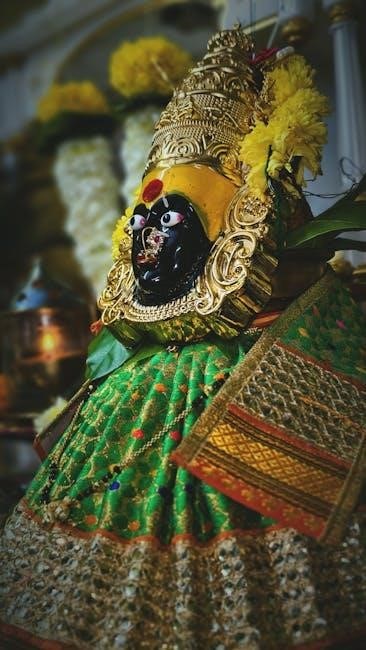
Availability of the PDF
The PDF of God of Carnage is accessible through various platforms. Free downloads are available on certain websites, while paid versions can be purchased from online retailers.
4.1 Free Download Options
Several websites offer free PDF downloads of God of Carnage, catering to readers seeking accessible versions. Platforms like PDFDrive or Scribd often host such materials, though availability may vary. Some educational repositories or literary forums also provide free access, especially for study purposes. However, users should verify the legality and quality of these downloads, as certain sources may not be authorized or may offer incomplete texts. Additionally, libraries or cultural institutions sometimes offer free e-book rentals, including plays like God of Carnage. Always ensure compliance with copyright laws when accessing such content.
4.2 Paid Platforms
For a reliable and high-quality copy of God of Carnage, several paid platforms offer the PDF for download. Amazon Kindle, Google Books, and Barnes & Noble Nook provide digital versions that can be purchased and downloaded instantly. These platforms ensure that the text is professionally formatted and free from errors. Additionally, platforms like Kobo and Apple Books offer the play in PDF or e-book formats, allowing readers to access it on various devices. Purchasing through these platforms supports the author and publisher, ensuring the content is legally distributed. These options are ideal for those seeking a seamless reading experience with guaranteed quality and legality.
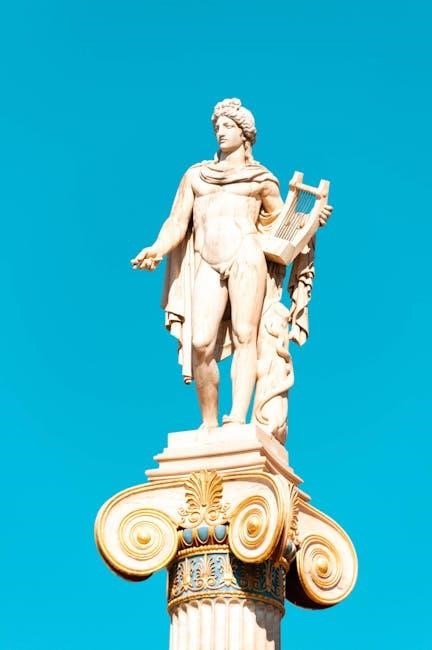
Stage Directions and Design
The stage directions in God of Carnage are meticulously crafted to enhance the play’s tension and dark humor. The PDF highlights the importance of a minimalist set, focusing on a modern living room that gradually reflects the characters’ unraveling civility. Specific instructions detail the placement of furniture and the use of subtle lighting changes to mirror the escalating conflict. The design emphasizes the claustrophobic atmosphere, with characters often moving in confined spaces to underscore their emotional entrapment. Costumes and props are also noted, with suggestions for naturalistic attire to maintain the play’s realistic tone. These elements, as outlined in the PDF, are crucial for directors to recreate the intended visceral experience of the performance.

Critical Reception and Reviews
God of Carnage received widespread acclaim for its biting dialogue and dark humor. Critics praised its exploration of human nature, earning it numerous awards, including the Olivier and Tony Awards. Audiences found the play intense and thought-provoking, resonating with its universal themes. The PDF version highlights rave reviews, with many calling it a masterclass in theatrical tension.
6.1 Audience Response
Audiences worldwide have responded enthusiastically to God of Carnage, praising its sharp wit and unflinching portrayal of human behavior. The play’s dark humor and intense dialogue resonate deeply, often leaving viewers both entertained and uncomfortable. Many find the real-time, single-setting format immersive, as it mirrors the unpredictability of real-life conflicts. The relatable themes of parenthood and societal expectations have sparked lively discussions among theatergoers. Fans of the play highlight the magnetic performances of the cast, which amplify the emotional tension. The PDF version of the script has also been praised for its readability, allowing readers to appreciate the nuanced dialogue and layered characters. Overall, the audience response has been overwhelmingly positive, with many considering it a must-see for its bold exploration of human frailty.
6.2 Award Recognition
God of Carnage has garnered significant acclaim and numerous awards, solidifying its place in contemporary theater. The play won the prestigious Tony Award for Best Play in 2009, highlighting its universal appeal and artistic excellence. Additionally, it received several Olivier Awards, including Best New Play, further cementing its reputation in the UK theater scene. The sharp dialogue and bold storytelling have been praised by critics and audiences alike, contributing to its award-winning status. The play’s success has also led to adaptations, including a film version directed by Roman Polanski. These recognitions underscore the work’s ability to provoke thought and explore uncomfortable truths about human behavior. The awards reflect the play’s enduring impact on modern drama and its ability to resonate with diverse audiences worldwide.
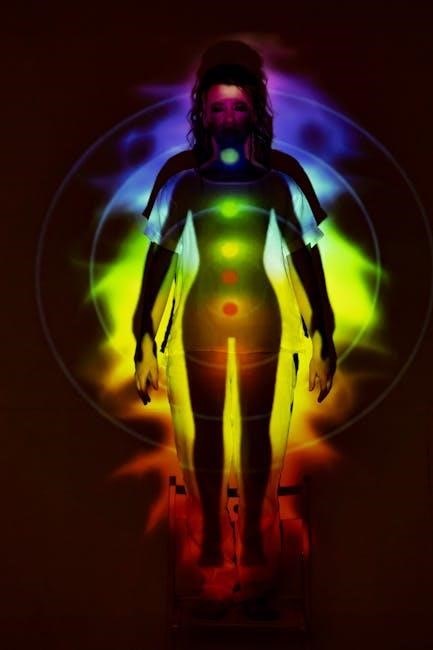
Educational Significance
God of Carnage is widely studied in schools and universities for its exploration of human behavior, moral dilemmas, and societal norms, fostering critical thinking and empathy.
7.1 Integration into Curriculum
The God of Carnage PDF is frequently incorporated into high school and undergraduate curricula due to its exploration of human behavior, ethics, and societal dynamics. Educators use the play to teach critical thinking, encouraging students to analyze themes like civility versus savagery and interpersonal conflict. The PDF format allows easy access for students, enabling annotations and digital sharing. Teachers often pair the text with discussions on drama, psychology, and sociology, making it a versatile tool for interdisciplinary learning. Additionally, the play’s concise structure and intense dialogue make it ideal for studying dramatic techniques and character development. Many schools provide the PDF as part of their reading lists, ensuring all students have equal access to the material. This integration enhances students’ understanding of complex human interactions and fosters empathy through relatable scenarios.
7.2 Analysis Activities
Educators often assign analysis activities using the God of Carnage PDF to deepen students’ understanding of the play’s themes and characters. One common activity involves close reading of key scenes, where students identify and analyze the escalation of conflict. Another activity includes character mapping, where pupils trace the emotional journeys of the four main characters. Additionally, teachers may assign comparative analyses of the French original and its English translation to explore linguistic and cultural nuances. Students are also encouraged to write reflective essays on themes like civility versus savagery or the impact of parenting styles. Group discussions and debates further enhance critical thinking, as students explore the moral dilemmas presented. These activities not only foster analytical skills but also encourage students to connect the play’s themes to real-world issues.
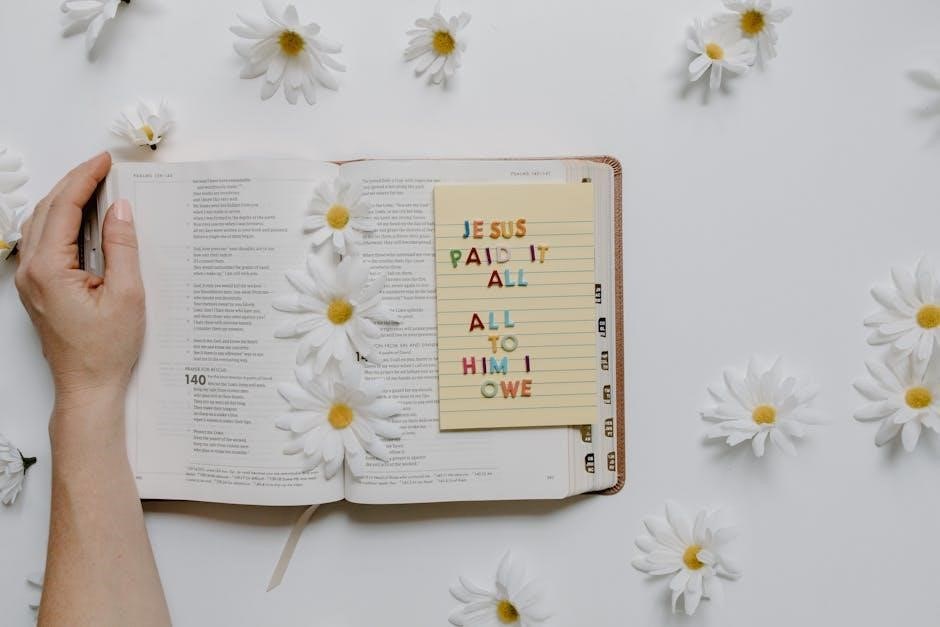
Language and Translation
The God of Carnage PDF is available in both its original French version, Le Dieu du Carnage, and its English translation by Christopher Hampton. The English version masterfully retains the dark humor and social critique of the original, ensuring the play’s themes resonate universally. The translation’s success lies in its ability to preserve the nuances of dialogue, making it accessible to global audiences while maintaining the playwright’s intent. This duality in language has contributed to the play’s widespread acclaim and adaptability across cultures.
8.1 Original French Version
The original French version of God of Carnage, titled Le Dieu du Carnage, was written by Yasmina Reza and first performed in 2007. This version captures the playwright’s nuanced dialogue and cultural undertones, which are deeply rooted in French societal norms. The PDF of the original French play is sought after by scholars and francophone audiences for its authenticity and linguistic richness. It offers a unique perspective on the themes of civility and savagery, as Reza’s native language often carries subtle expressions that might not fully translate. For those studying French or interested in the play’s cultural origins, the original version provides a deeper connection to Reza’s intent and artistic vision.
8.2 English Translation
The English translation of God of Carnage, adapted by Christopher Hampton, captures the biting wit and dark humor of Yasmina Reza’s original play. The translation maintains the essence of the French version while making it accessible to English-speaking audiences. The PDF of the English translation is widely available, allowing readers to explore the nuanced dialogue and complex character dynamics. This version has been praised for its faithfulness to the original’s tone and themes, ensuring that the exploration of civility and savagery resonates equally in both languages. The English translation has also facilitated the play’s global success, making it a popular choice for both theatrical performances and academic study.
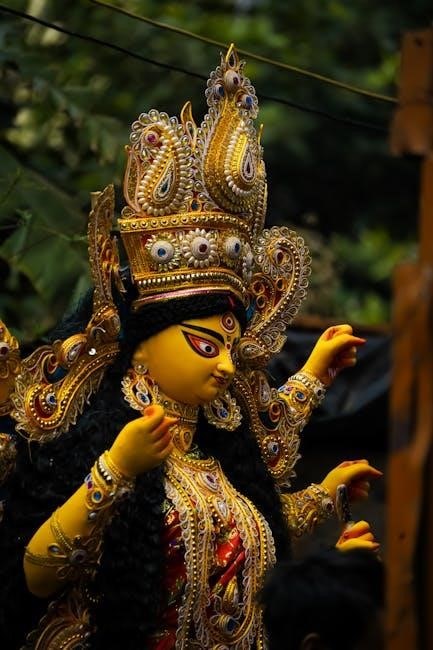
Cultural Impact
God of Carnage has left a significant mark on cultural discourse, sparking conversations about human behavior and societal norms. Its exploration of civility versus savagery resonates universally, making it a timeless piece that transcends cultural boundaries. The play’s dark humor and satirical take on modern parenting and relationships have influenced both theatrical productions and public discussions. Its success has inspired adaptations and interpretations worldwide, cementing its place in contemporary theater. The availability of the PDF version has further amplified its reach, allowing diverse audiences to engage with its themes. As a result, God of Carnage continues to be a cultural touchstone, provoking reflection on human nature and societal expectations. Its enduring relevance ensures its impact will be felt for years to come.
Leave a Reply
You must be logged in to post a comment.